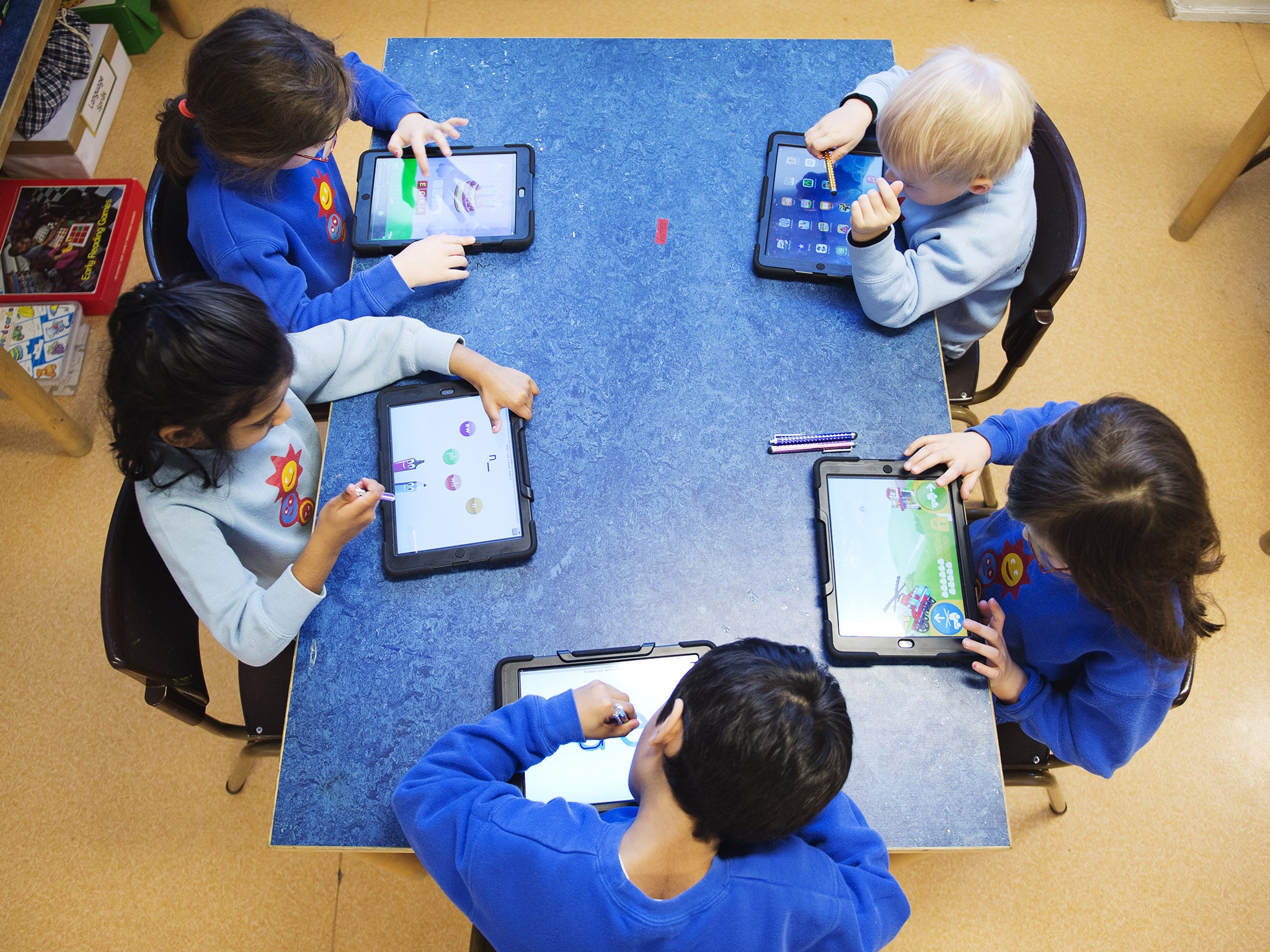Technology in schools? Just a mad, bad iPad fad
Spend the money on teachers instead

Your support helps us to tell the story
From reproductive rights to climate change to Big Tech, The Independent is on the ground when the story is developing. Whether it's investigating the financials of Elon Musk's pro-Trump PAC or producing our latest documentary, 'The A Word', which shines a light on the American women fighting for reproductive rights, we know how important it is to parse out the facts from the messaging.
At such a critical moment in US history, we need reporters on the ground. Your donation allows us to keep sending journalists to speak to both sides of the story.
The Independent is trusted by Americans across the entire political spectrum. And unlike many other quality news outlets, we choose not to lock Americans out of our reporting and analysis with paywalls. We believe quality journalism should be available to everyone, paid for by those who can afford it.
Your support makes all the difference.Float the subject of classroom technology around The Independent's comment desk and strong opinions – as they often do – emerge. For those who left school not too long after the first interactive whiteboards arrived, there was much affection for the time before pixels. Some sneering, too, about the superiority of the felt tip pen and other teaching tools by now considered Neanderthal. I fell into this camp.
Then came a storm of protest from a better placed source, whose sister in fact teaches in a primary school. The pupils there gain plenty from technology, we were informed. Lessons, diagrams, and teaching plans are fizzed from device to device, and never eaten by Labradoodles. That might have been that. Real-life experience tends to trump nostalgia. But – as I can continue the argument from the safety of my keyboard – there is a case for caution that goes beyond the suspicion that the only way to educate children is the way one was educated oneself.
Tomorrow the Bett exhibition opens in London, and there teachers will find a range of merchandise that promises digital “improvements” to schools. I use the scare quotes with reason. Some of the stock provides solutions to problems that did not really exist until technology came along to solve them. The Wireless Voice Amplifying System? Parents’ Evening Booking System? Try speaking up, or, well, just not using the software. Yes this is cherry-picking and naturally some schools do need a digital whiteboard that can be operated by 10 people simultaneously (sorry, that’s cherry-picking again) but money, we know, is tight. And anyone who has bought an iPad thinking it would turn them into a more educated, culturally aware human being – like those fantastic creatures in the adverts – only to later find themselves watching Game of Thrones on the toilet, knows how the lure of “technological progress” can prove a false one.
The Head of the National Association of Head Teachers (NAHT) had something sensible to say on the subject yesterday. ICT is obviously essential for computing lessons, offered Russell Hobby, but – to paraphrase – a bit like a Nutribullet in the rest of the curriculum. “Nice, perhaps, time-saving, maybe,” – but someone still needs to put the food in, and nobody’s really sure if the result is any healthier. In fact, the data on technology improving test scores is weak, though British schools now spend £250m on it a year. “I think we’d be better spending the money on recruiting and training great teachers and sticking them in front of old-fashioned blackboards,” said Hobby. Or perhaps schools could invest in more Mentors – the old-fashioned kind, that is, not the storage and charging system for tablets which can be purchased at Bett for a few thousand pounds.
That the young are more computer-literate is no reason to pander to them by turning classrooms into a simulacrum of PC World. I spent a hell of a lot of time peering at screens outside of school, and now spend all day doing the same at work. Which makes me glad, if only for the sake of my eyesight, that my generation’s definition of “interactive” largely involved forcing kids to run around a field. Though I suppose my colleague would call that short-sighted.
Join our commenting forum
Join thought-provoking conversations, follow other Independent readers and see their replies
Comments